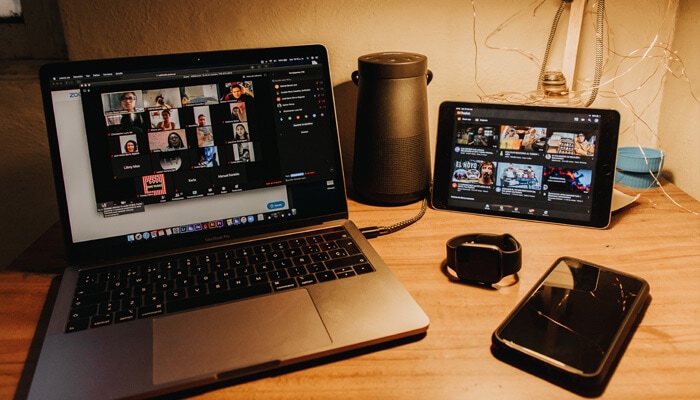The COVID-19 pandemic has brought many changes to how we live our lives, including altered daily routines, heightened financial pressures, social isolation, and constant feelings of uncertainty. We may worry about ourselves and our loved ones getting sick, and fear what the future might bring as it relates to our livelihood. All of these feelings and worries are only exacerbated by information overload and misinformation, causing us to feel like our lives are completely out of our control.
As we continue to protect our physical health by following public health orders such as social isolation and social distancing, it is also important to prioritize our mental health during this time. We encourage you to seek out healthy coping mechanisms and engage in self-care strategies to help mitigate feelings of stress and anxiety. Keep reading for some self-care strategies that can help you feel more in control of your life during such uncertain times.
Take care of your body

Get enough sleep
Good sleep is critical for maintaining mental health. Working from home can make it difficult to maintain a consistent sleep schedule, which can lead to sleep disturbances. Try to go to sleep and wake up at the same time everyday to help prevent grogginess and low mood. Cut back on screen time, especially right before bed, because blue light can suppress your melatonin levels, which can in turn cause insomnia and nightmares.

Stay active
Regular physical activity can help improve your mood and reduce anxiety. Choose an activity that you enjoy — walking in nature, simple stretching, yoga, dancing, lifting weights — and regularly incorporate it into your schedule.

Eat well
Research shows eating a healthy, well-balanced diet positively affects our physical health, and may also be associated with feelings of well-being. During times of high-stress, we tend to gravitate towards comfort foods (Cheetos, anyone?), but try exchanging the junk food for a more nutrient-dense option. Limiting caffeine intake may also help to reduce stress and anxiety.
Take care of your mind

Maintain a schedule
Just like having a regular bedtime routine, it is also important for your mental health to keep a regular daily routine. Have a consistent schedule for meal time, bath time, work or study and exercise. It can also help to create a to-do list, and set some easy-to-accomplish goals for the day.

Do a digital detox
While it is important to stay updated, too much exposure to the news and time on social media can increase your feeling of stress and anxiety. If the endless scrolling makes you feel overwhelmed, set aside time to turn all of your electronics off. Take this time to bring back awareness to yourself, your experience and who you are, rather than what’s going on in the world.

Pick a new hobby, or revisit an old one
Having a creative outlet will help to occupy your mind with something purposeful that you enjoy. Learn a new skill, paint, test out a recipe, take a language course online, or dig out your old Rubix cube.

Practice self-care
Even for just a few minutes, set aside a quiet time for yourself to refresh your mind and reduce anxiety. You can try yoga or meditation, journaling, going on a walk, listening to music or reading a book. The AlchemyThree team loves to use the Headspace app to practice mindfulness and meditation!
Connect with others

Make virtual connections
Even if you need to stay at home, you can avoid feelings of isolation by making virtual connections through email, FaceTime, or a Zoom call. Talk to your family, friends, or colleagues. Start a virtual book club, or have a virtual at-home happy hour with your friend group.

Help the people around you
Check on your family, friends and neighbors. If you know someone who is high-risk and cannot leave their home, ask if they need help with anything, like buying groceries or picking up medicine. Just make sure to follow social distancing guidelines!

Support your family or friend
If your family or friend needs to be quarantined at home or in the hospital, stay in contact with them through phone or by sending a note, to brighten up their day.
Get Immediate Help When You Need It
During this pandemic, you may experience increased stress, fear and anxiety. If you have concerns or experience mental health symptoms, it’s okay to ask for help! Here are some resources below.
- Disaster Distress Helpline: 1-800-985-5990
- National Suicide Prevention Lifeline: 1-800-273-TALK (8255) or Lifeline Crisis Chat
- National Domestic Violence Hotline: 1-800-799-7233 or text LOVEIS to 22522
- National Child Abuse Hotline: 1-800-4AChild (1-800-422-4453) or text 1-800-422-4453
- National Sexual Assault Hotline: 1-800-656-HOPE (4673) or Online Chat
- The Eldercare Locator: 1-800-677-1116 TTY Instructions
- Veteran’s Crisis Line: 1-800-273-TALK (8255) or Crisis Chat or text: 8388255




